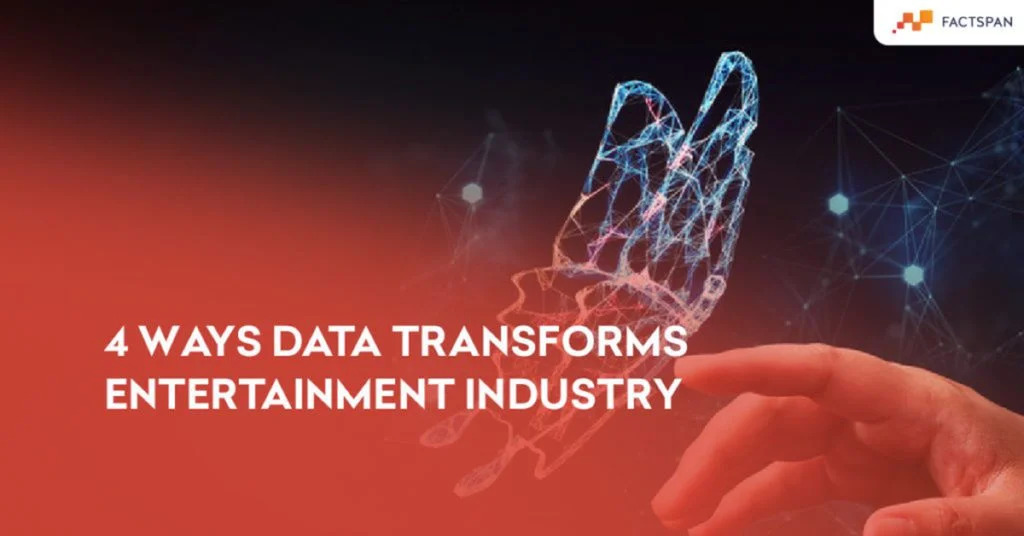Almost two-thirds of media executives see a rising trend in data availability as an opportunity in the entertainment industry. Moreover, in some subsectors of the entertainment industry, such as information services — data reinforces the entire department’s key performance indicators. Hence the next logical step for them is incorporating data insights into their products and services. Yet, the ability to effectively utilize data remains turbulent for many enterprises.
Entertainment industries are gathering consumer data more than any other sector. Hence, it’s safe to say that the entertainment sector has been reborn after digital transformation. Let’s dive deeper into four ways data is transforming the entertainment industry.
Product Innovation
Entertainment companies require data mining and analyzing capabilities to predict new features of the product. Subsequently, the data insights provide an edge to the business in the face of competition and minimize risk by offering more data-driven decision-making in a volatile market. Entertainment leaders have to be on their toes while diversifying their products since consumers have heterogeneous preferences.
Accessibility & Content Discovery
It’s interesting to note how the screens we look at are becoming smaller, and they’ve shrunk from theatre size to mobile screen sizes. The screen size is changing, but the customer generates data from a variety of devices. As a result, the OTT leaders derive insights from analyzing that data that could have limitless applications.
Global studios use the power of Artificial Intelligence in the content distribution processes. AI helps generate auto-generated subtitles, and it uses neural networks to comprehend the intent and accuracy of the language to near-perfect translation. Moreover, OTT platforms use the potential of sentiment analysis to classify and flag inappropriate content.
Analyzing Social Media Metrics
Media companies utilize social media platforms as a crucial strategy in knowing their customer’s preferences. Social media data can provide insights into frequent customer complaints and opinions of the actively subscribed product users.
Globally, customers assess company social media; vast volumes of unstructured data could help entertainment companies find customer preferences.
Moreover, entertainment companies leverage big data tools to assess their content analytics and find out their potential demographics. Accordingly, promote and repurpose the content in different formats to gather more traffic to their products.
Content Monetization
Entertainment companies are pretty fussy about picking the right content to make the audience happy and business profitable. Business owners expect a return on investment after choosing the right content. However, organizations gather and analyze consumer data to sell each user a personalized experience. As a result, the industry feels an intense strain between personalizing data and respecting consumer privacy.
Moreover, users’ expectation for quality content is evolving. Thereby, OTT platforms utilize users’ viewership and click data to mine for content production. Also, they repurpose automated, personalized content recommendations in streaming services and social media platforms.
Finally, media companies have put significant efforts into including data in their lifecycle. Moreover, companies have started consolidating existing customer data to find past patterns. Promoting data also enhances the analytics and data skills of the employees, thereby churning out data-driven decision-making across every department. Last but not least, data transformation helps strengthen the infrastructure for developing proprietary data sources to better leverage consumer data.










